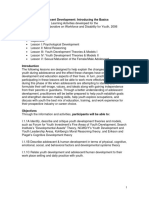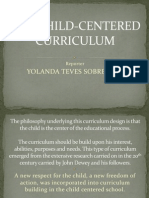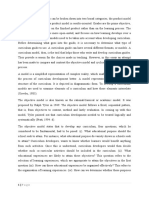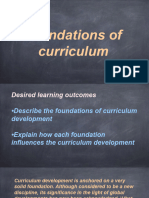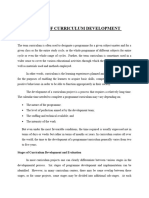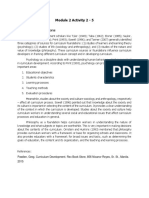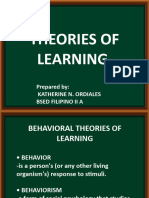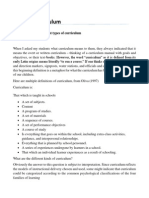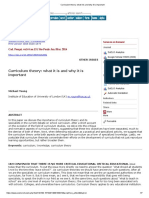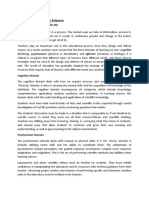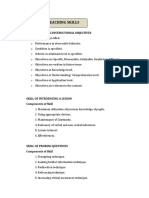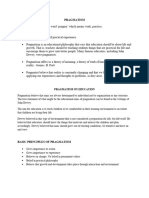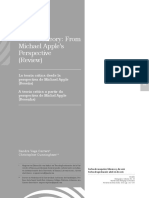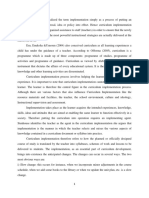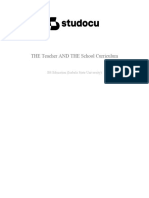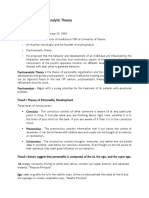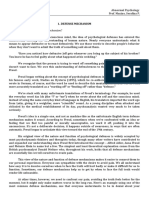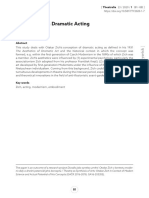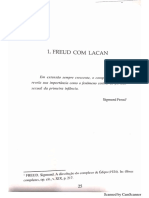Discuss the theory
Understanding the complexities of children's learning requires delving beyond cognitive processes.
Educational theorists like Herbert Kliebard and Sigmund Freud offer valuable insights by exploring
the influence of social and psychological factors. While their approaches differ significantly, both
highlight the intricate interplay between power structures, unconscious desires, and the learning
experience.
Kliebard, through his work in curriculum theory, focuses on the sociopolitical context of education.
He argues that power dynamics within institutions, embedded in knowledge selection and
curriculum design, shape what children learn and how they learn it (Kliebard, 1986). This power,
wielded by dominant groups, can lead to the marginalization of certain perspectives and
experiences, potentially hindering learning for specific groups of children. For instance, a curriculum
neglecting diverse historical narratives might limit a child's understanding of their own identity and
place in society. Kliebard emphasizes the need for critical reflection on power dynamics within
educational structures to ensure inclusive and empowering learning experiences for all (Kliebard,
1991).
Freud, on the other hand, delves into the unconscious mind's influence on learning. His
psychoanalytic theory posits that early childhood experiences and unresolved conflicts can manifest
as unconscious desires and anxieties, impacting cognitive and emotional development. These
unconscious forces can influence a child's motivation, attention, and ability to engage with learning
material. For example, a child experiencing anxiety about authority figures might struggle to learn
effectively in a teacher-centered classroom environment. Freud's insights suggest that creating a
safe and supportive learning environment that acknowledges and addresses children's emotional
needs is crucial for optimal learning (Freud, 1925).
While their approaches differ, both Kliebard and Freud highlight the limitations of traditional, purely
cognitive models of learning. Kliebard's focus on power structures reminds us that knowledge is not
neutral, and its transmission is influenced by social and political forces. Freud's emphasis on the
unconscious reveals the complex interplay between emotions, desires, and cognitive processes in
learning.
However, it's important to acknowledge the limitations of each theory. Kliebard's focus on power
structures can sometimes neglect the agency of individual teachers and learners. Similarly, Freud's
emphasis on individual unconscious conflicts might overlook broader societal factors impacting
learning.
Ultimately, understanding children's learning requires a multifaceted approach that considers both
the social and psychological dimensions. By integrating insights from Kliebard and Freud, we can
create more inclusive and effective learning environments that address the power dynamics within
educational structures while acknowledging the complex interplay between emotions, desires, and
cognitive processes in children's minds.
References:
Freud, S. (1925). An outline of psychoanalysis. International Psycho-Analytical Library (No.
23). Hogarth Press.
Kliebard, H. M. (1986). The struggle for the curriculum: Power, knowledge, and policy in
school reform. Routledge.
� Kliebard, H. M. (1991). The sociology of school knowledge: Curriculum in an age of
uncertainty. Allyn & Bacon.
Freud's theories have been applied to education in various ways. One application is in
understanding the unconscious processes and resistance to new ideas and practices that
exist within educational relationships . Freud argued that teaching is an "impossible"
profession due to the influence of unconscious drives, such as aggression and sex, on the
teacher-student dynamic . Additionally, Freud's psychoanalytic theory can help explain the
teaching-learning process by emphasizing the importance of the relationship between the
learner and the Other, which can either be healthy or destructive . Freud also criticized the
hegemonic pedagogy of his time and highlighted the need to think about education beyond
naturalistic justifications . Overall, Freud's theories provide insights into the complexities and
challenges of education, and offer potential ways to improve teaching practices.





